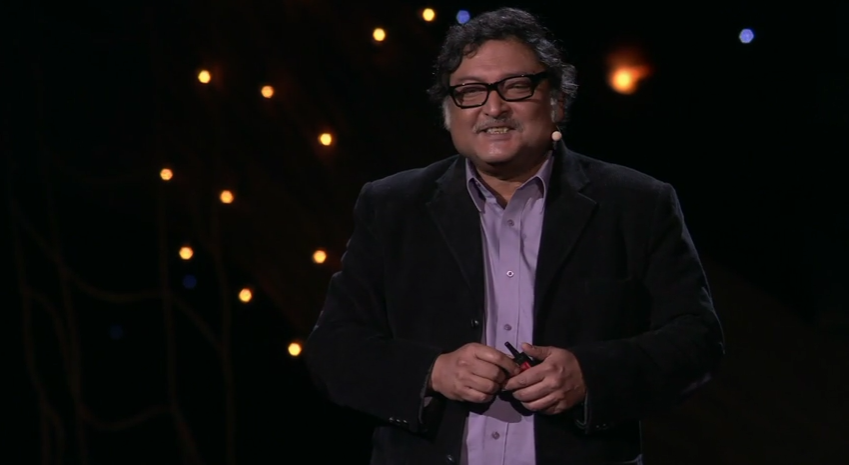It's been tried all over the world, and teachers sort of stand back and say, "It just happens by itself?"
在世界各地嘗試過,老師們后退著說:“它就這么自己發生了?”
And I said, "Yeah, it happens by itself.""How did you know that?"
我說:“是的,自己發生了。”“你怎么知道?”
I said, "You won't believe the children who told me and where they're from."
我說:“你們不會相信是哪里的孩子告訴我的。”
Here's a SOLE in action.
這是一個正在進行的自主學習活動。
This one is in England. He maintains law and order, because remember, there's no teacher around.
這個活動在英格蘭。他負責維持紀律和秩序,還記得嗎,因為沒有老師在場。
The total number of electrons is not equal to the total number of protons--Australia Girl-- giving it a net positive or negative electrical charge.
電子的總量不等于質子——這是在澳大利亞女孩——所給與電子的負電荷的凈電荷量。
The net charge on an ion is equal to the number of protons in the ion minus the number of electrons.
離子上的負電荷數量等于離子上質子的數量減去電子的數量。

A decade ahead of her time.
比她的同齡人領先了10年。
So SOLEs, I think we need a curriculum of big questions.
所以我們需要為重大課題提供全套課程,通過自主學習環境。
You already heard about that. You know what that means.
你早就聽說過了。你知道那是什么。
There was a time when Stone Age men and women used to sit and look up at the sky and say, "What are those twinkling lights?"
在石器時代,男人們和女人們常坐著,看著天空說:“那些閃閃發光的是什么?”
They built the first curriculum, but we've lost sight of those wondrous questions.
他們建立了最早的課程,而我們卻已經忽略了那些奇妙的提問。
We've brought it down to the tangent of an angle. But that's not sexy enough.
我們把這些沖撞叫正切。但這種說法不夠令人興奮。
The way you would put it to a nine-year-old is to say,
要是面對一個九歲大的孩子,你該這么說:
"If a meteorite was coming to hit the Earth, how would you figure out if it was going to or not?"
“如果一顆流星向地球撞過來,你怎么知道撞得到還是撞不到?”
And if he says, "Well, what? how?" you say, "There's a magic word. It's called the tangent of an angle," and leave him alone. He'll figure it out.
假如他說:“哦,什么?怎么知道?”你說:“有一個神奇單詞叫做——正切。”然后你留下他一個人。他自己會琢磨出來的。











